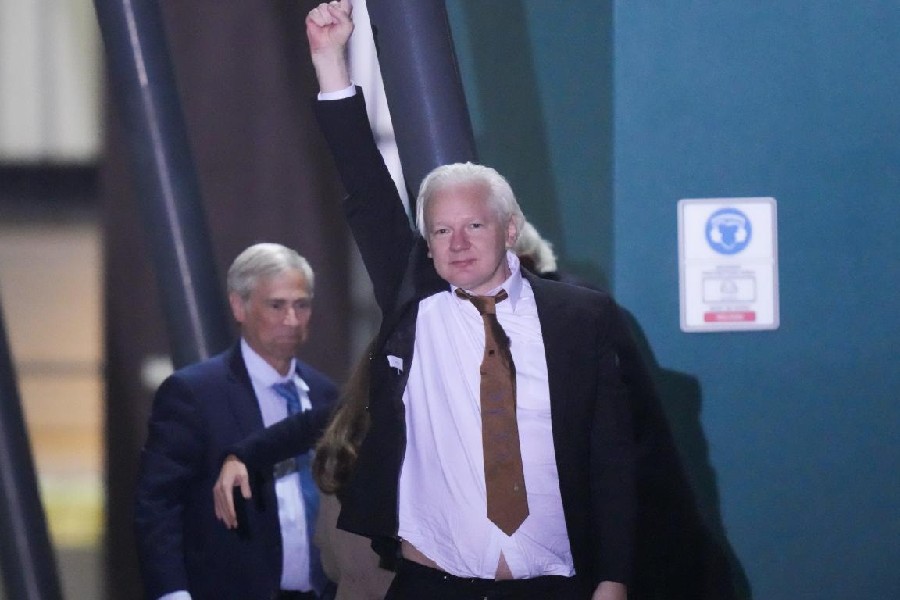Julian Assange spent his youth in Australia during the 1980s in a state of chaotic, perpetual motion. He moved more than two dozen times, bounced from school to school, and was thrust, for a time, into what he called a New Age cult, before settling in Melbourne.
It was there, at age 16, that he adopted a calling: hacking. It would eventually place him on the edge of global disruption in an era of backlash against the national security and political establishments.
Assange, the 52-year-old founder of WikiLeaks, boarded a private jet this week from London for the long flight to a US courtroom in Saipan, where he pleaded guilty on Wednesday to a single count of illegally obtaining and disseminating national security information.
Long legal saga
For a case that attracted a spotlight for more than a decade, its final throes played out quickly and in relative obscurity.
Assange, wearing a black suit, offered his plea in a federal court in Saipan, the capital of the US commonwealth of the Northern Mariana Islands in the Western Pacific. He had refused to appear in court on the US mainland.
He responded carefully to questions from US district Judge Ramona Manglona and defended his actions, describing himself as a journalist seeking information from sources, a task he said he saw as constitutionally protected.
“I believe the First Amendment and the Espionage Act are in contradiction with each other,” he said, “but I accept that it would be difficult to win such a case given all the circumstances.”
Shortly after his plea, Manglona sentenced him to time he had already served at Belmarsh Prison in Britain.
There is at least one more debt to pay: $520,000 to the Australian government for the chartered flight home, an amount he hopes to raise through crowdsourcing.
Audacious hacker
If the past is any guide, Assange may not remain idle for long.
By his late teens, Assange was — by his own account — the most accomplished hacker in Australia, claiming to have breached thousands of systems, from a local telecommunications commission to servers at the Pentagon, using the alter ego Mendax, among other aliases. (As a teenager, he adopted the credo “splendide mendax”, Latin for “brilliantly untruthful”.)
Assange has said his goal has always been to publicly share important information hidden by big government and big business, without damaging the systems he infiltrated. And by the early 1990s, Assange and a group of hackers began to systematically target systems run by what he called “the US military-industrial complex”.
In 1994, he had his first serious brush with the law, facing a 31-count indictment for hacking into servers owned by Telecom Australia. Assange, who faced 290 years in prison, fell into a deep depression, wandering around the wilderness near Melbourne and sleeping outdoors. Eventually, he entered a guilty plea and received no jail time.
Transparent Wiki
Assange and a group of like-minded activists, hackers, programmers and academics founded WikiLeaks in 2006, with the stated mission of shattering the veil of secrecy protecting powerful cabals in private and public life.
He defined his role as a digital Robin Hood, freeing “persecuted documents” from captivity in secret computer networks.
In its early years, WikiLeaks worked closely with mainstream news organisations, uncovering details of extrajudicial killings in Kenya, China’s repression of dissidents, possible financial corruption in the US and Peru, among many others.
The group’s success made its founder famous. Assange was tireless, brash and itinerant, traveling from country to country to recruit volunteers, court would-be leakers and herald the virtues of extreme institutional transparency.
New York Times News Service











